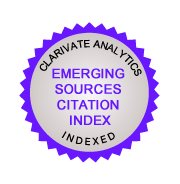GREEN CONSUMER PURCHASE BEHAVIOUR IN MALAYSIAN SUPER-REGIONAL MALL’S GENERAL MERCHANDISE STORES
DOI:
https://doi.org/10.32890/ijms2023.30.2.3Abstract
Since the establishment of super-regional and mega malls in Malaysia, little is known about green consumers’ purchase intention
and behaviour in the malls’ general merchandise stores (GMS). This study first examines the profile of green consumers’ purchase
intention and behavior on green products in the GMS. Second, the green consumers’ social classes were segmented to explore
social class differences in the purchase intention and behaviour in the stores. The purposive sampling was used to collect the data
from the respondents in the southern region of Malaysia. Using the SmartPLS, the data were analysed using the multi-group analysis
(MGA) and the measurement invariance of composites (MICOM). The results showed the psychographic variables positively influenced ecologically conscious consumer behaviour (ECCB) on the purchase intention and behaviour. In addition, the middle-class consumers’
shopping lifestyle influences positively on the ECCB and they are more likely to purchase green products than the upper middle-class
group. The outcome of the green consumer profile provides an insight into the patterns of purchasing of the consumers in the GMS and the indication of consumer’s consideration of energy conservations from home.
Downloads
References
Additional Files
Published
Issue
Section
License
Copyright (c) 2023 International Journal of Management Studies

This work is licensed under a Creative Commons Attribution 4.0 International License.













